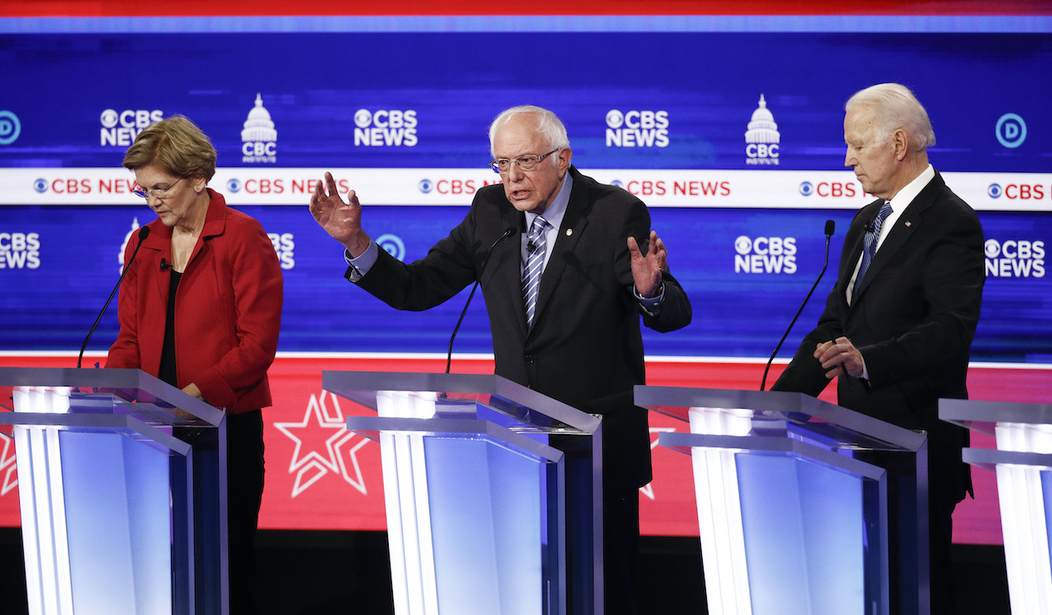When it comes to healthcare, Bernie Sanders is all alone. The Vermont senator is one of just two presidential candidates who support Medicare for All. The other, Senator Elizabeth Warren, has fallen in the polls and never fully embraced Sanders' radical proposal to begin with.
The rest of the Democratic field -- including former Vice President Joe Biden, former Mayor Mike Bloomberg and Senator Amy Klobuchar -- has instead proposed establishing a government-run health insurance plan that would compete against private insurers.
These candidates have a lot of support for their plans. Nationwide, 68 percent of adults favor a "public option" proposal, according to a recent Kaiser Family Foundation poll. Meanwhile, just over one in two adults -- 56 percent -- supports Medicare for All.
But this allegedly moderate approach wouldn't serve Americans any better. In fact, the public option is little different than Medicare for All. Both would result in a complete government takeover of the U.S. healthcare system.
Supporters believe the public option can offer comparable coverage to Medicare for All without eliminating private insurance. By providing additional competition, the thinking goes, it would push private insurers to reduce their costs.
But a public option would have several unfair advantages over private insurers. For starters, it wouldn't have to cover its costs. It could offer coverage at cut-rate prices and count on the federal Treasury to fill in the gaps if payouts to providers exceed the premiums it takes in.
Recommended
Second, a public option would have the ability to dictate the prices it's willing to pay for care. Doctors and hospitals would have little choice but to accept the government's offer.
Most public option plans envision paying healthcare providers about what Medicare pays them. Doctors currently receive 25 percent less from Medicare than from people with private coverage.
A study published this year by the RAND Corporation found that private health plans pay hospitals 241 percent of what Medicare pays, on average. Hospitals claim they receive just 87 cents from Medicare for every dollar they spend treating the program's beneficiaries. By that math, Medicare underpaid hospitals by $54 billion in 2017.
The freedom to lose money and the ability to dictate reimbursement rates would give the public option an artificially low cost structure. So it'd be able to underprice private plans -- and steal their customers. One study found that a public option would cause 70 percent of people to drop their private coverage. Another study found that a national public option would enroll over 40 million people in its first year alone.
That would set the stage for private insurance's destruction. As providers began treating more and more low-paying public option patients, they'd likely raise prices for the privately insured to compensate. Insurers would pass those costs onto their customers in the form of higher premiums. That would push yet more people into the public option. And the cycle would repeat.
Eventually, there'd be no one left for private insurers to cover. So they'd go out of business. One study found that 20 percent of state marketplaces would not have a private insurance option within eight years of a public option taking effect.
In other words, they'd arrive at single-payer -- if not totally intentionally.
Democrats claim they want to build on Obamacare or protect private insurance. But their plans would destroy healthcare as we know it -- and put the government in charge of the country's health insurance system.

























Join the conversation as a VIP Member